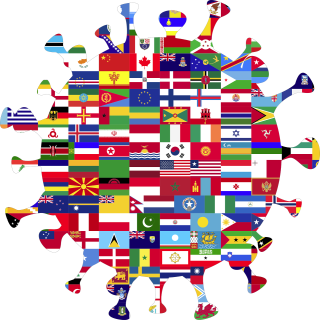Health
On the Privilege of Living in a High-Income Country
How the advantages of this privilege shape how we think and what we do.
Posted September 6, 2023 Reviewed by Ray Parker
Key points
- Much of the thinking/ leading research in public health is done by people who live in high-income countries.
- A more equitable approach to global health involves greater input from communities in low-income countries.
- High-income privilege can shape health perspectives—be aware of how it shapes perspectives on health.

Part of the work of promoting health is engaging with the role of privilege.
There are many kinds of privilege, and essentially all forms of privilege influence health. Today, a few thoughts about one kind of privilege that we do not talk about enough: the privilege of living in a high-income country.
I do so mindful that this is indeed just one kind of privilege, and that there are many other levels of privilege worth addressing. Much of the recent academic conversation about privilege has centered around forms of privilege found within U.S. national borders, such as the advantages conferred by factors like race, class, education, and native-born status.
This conversation is all to the good, a necessary part of grappling with privilege. However, it is also important to widen our focus to see the tremendous privilege of being able to live, work, and engage in public conversation in a high-income country.
There is a contradiction at the heart of the work of academic public health today. While we are centrally concerned with supporting the health of all populations, it remains true that much of the writing and leading thinking in public health is done by those who represent a small subset of the global population, namely the part of the population living in high-income countries.
Worldwide, this subset is quite small indeed. About 16 percent of the world’s population lives in high-income countries. Yet the populations of these countries are substantially overrepresented in science and academic publishing, with over 90 percent of science and engineering publishing coming from upper-middle- and high-income countries.
It is important to stress, of course, that this overrepresentation primarily refers to publishing, not to the broader, on-the-ground work of public health. There is much good public health work being done in low-income countries, often led by the communities within these countries.
However, it is in high-income countries that we see much academic thinking, writing, and framing of public health issues. This reflects a fundamental distance between the shaping of thinking about health and the lives of the populations affected by our efforts in the low-income world. I am aware that acknowledging this reality can seem paternalistic, a charge to which public health can be vulnerable.
Yet it remains a fact that much of the thinking that supports our global health efforts takes place in high-income countries and our efforts are deeply shaped by this high-income-country-centric perspective.
This global mismatch is reflected in the resources allocated for the research that shapes public health thinking. The National Institutes of Health, for example, has a budget of $45 billion. More than 84 percent of this money goes to extramural research, supporting around 50,000 grants. This grant money supports over 300,000 researchers in over 2,500 academic and research institutions across the U.S.
We see a similar abundance of resources when we look at global foundations like the U.K.-based Wellcome Trust, a charitable foundation focused on health research that is supported by an investment portfolio that is currently valued at about $46 billion.
These spending profiles reflect the vast resources that high-income countries have at their disposal to drive the research that is the intellectual foundation of what we do. Our pursuit of health, then, is to some extent underwritten by the global inequality that allows high-income countries to spend billions each year on the study of health through well-resourced public and private organizations.
In recent years, there has been an effort to grapple with what this has meant for what we have historically called “global health.” Much of this has coalesced around the notion of decolonizing global health. This has meant looking at how global health has often been characterized by health workers from high-income countries working in low-income countries to pursue a vision of public health with little input from the communities whose health they are there to support.
This ongoing reappraisal of global health has been, I think, a positive influence, shaping a more equitable approach to our work by acknowledging where we have historically fallen short.
Yet as critical as this decolonizing work is, we can engage in it while failing to grapple with the arguably more foundational challenge of the privilege imbalance that underlies so much of what we do. As we look to shape a new, practical philosophy of health at this moment, we have a chance to engage in a process of self-reflection, to look at why we see the world the way we do. This includes looking at the privilege that shapes how we think and what we do in pursuit of health.
This begins, I would suggest, with the simple importance of acknowledging this privilege as a fundamental force that shapes how we see the world. In practical terms, this means that every time I am about to write or speak, I try to ask myself whether what I am about to express is somehow distorted by my privileged perspective.
Would I express it differently if I were engaging from a place of less privilege? Am I misaligning priorities based on my circumstances?
Asking these questions should push us in high-income countries to look beyond our privilege, keeping our eyes open to the whole world, not just the part of it we inhabit. In this, we are helped immeasurably by working in diverse environments, by the perspectives of other people, and by the friends and colleagues who bring to our networks a range of experiences, opinions, and priorities, helping prevent the myopia of mistaking what is in front of one’s nose each day for all there is.
Finally, the reality of privilege—the undeniable advantages that come from living and working in a high-income country—means there is little we can do that is more important than shaping a healthier world by addressing the structural drivers of global inequity. The fact that the world can be divided into high- and low-income countries reflects how far we still have to go to create a healthier world founded on the basis of equity.
Creating such a world is the central goal of public health. This means using our privilege to build a future where notions of privilege are no longer a factor in deciding who gets to be healthy. And that is worthy work indeed.
A version of this post also appears on Substack.




